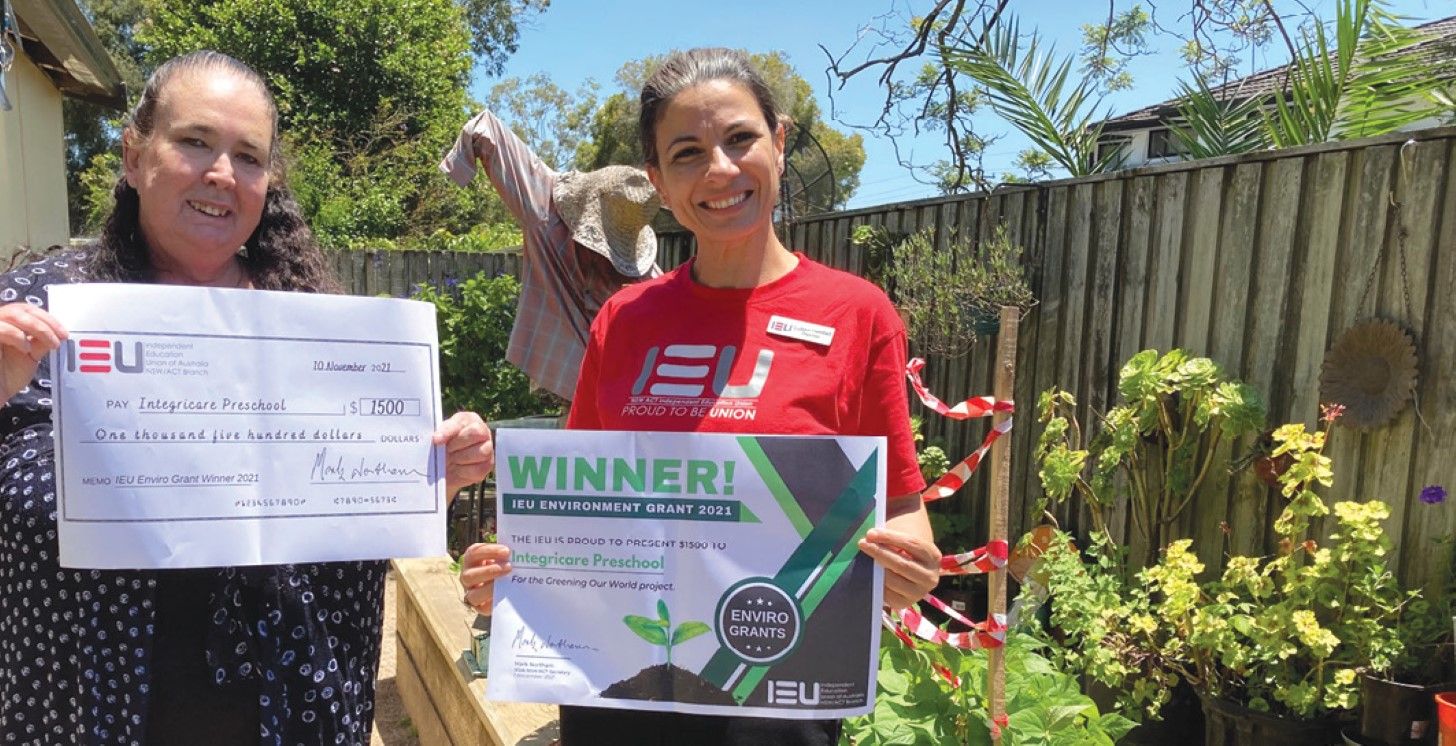Integricare Preschool Pendle Hill Director Belinda Adair tells Bedrock about winning the 2021 IEU Environment Grant.
Q. What sparked your application for the grant?
A. Our garden is situated on a causeway and during periods of heavy rain, the water causes the soil and garden bed to erode, leaching the nutrients from the soil which affects what plants can be grown.
Our project involved the installation of two garden beds with solid edging to prevent the soil from eroding. To replenish the soil nutrients, we purchased a sub-pod and filled the garden beds with a soil mix specifically designed for Australian natives.
Our preschool has a keen interest in learning about First People’s culture including the Dharug people’s knowledge of local plants and their uses. We researched bush tucker plants local to the Cumberland region and investigated how these plants were used by the Dharug people. We selected and planted bush tucker plants endemic to the Dharug region.
Q. How will developing your garden beds benefit children and teachers at the centre?
A. The sub-pod combines composting with a worm farm and enables the children to see their food waste transformed into nutritious fertiliser which is used to feed the soil and the plants.
The planting of the bush tucker plants enables us to learn about the local Indigenous culture and talk with children about how First Peoples utilised these plants. It provides the opportunity for educators and children to use these plants according to local Indigenous ways of knowing.
Halfway through construction of our project, we encountered 2–3 weeks of heavy rain and some flooding of the playground area. The huge amount of rain led to one area in the garden being plagued with mosquitoes.
NSW Health issued a warning to the public regarding mosquitoes and the Japanese encephalitis virus. As a team, we looked at ways of reducing the number of mosquitoes in the environment and decided to place the other garden bed where the mosquitoes are, and to plant a variety of mosquito repellent plants as a means of combatting them. The provision of a mosquito repellent garden reduces the risk of infection by mosquitoes and improves health and wellbeing outcomes for children, educators and the community.
Q. Does the grant help you develop links with your families and the wider community?
A. All materials for our project were sourced from local businesses in our community. Families were involved in assisting with the construction and filling of the garden bed. Bush tucker plants were obtained from Cumberland State Forest which provided a range of bush tucker plants endemic to the region. An educator liaised with the horticulturalist at Cumberland State Forest and provided valuable information about the bush tucker plants, which enabled us to make an informed decision on the best plants for our preschool.
Q. Any other information we should know about?
A. We are still completing our project with the mosquito repellent garden about to be installed. We have decided to make further improvements and are looking at obtaining the services of former preschool parents who are landscapers to assist us.



































































































































